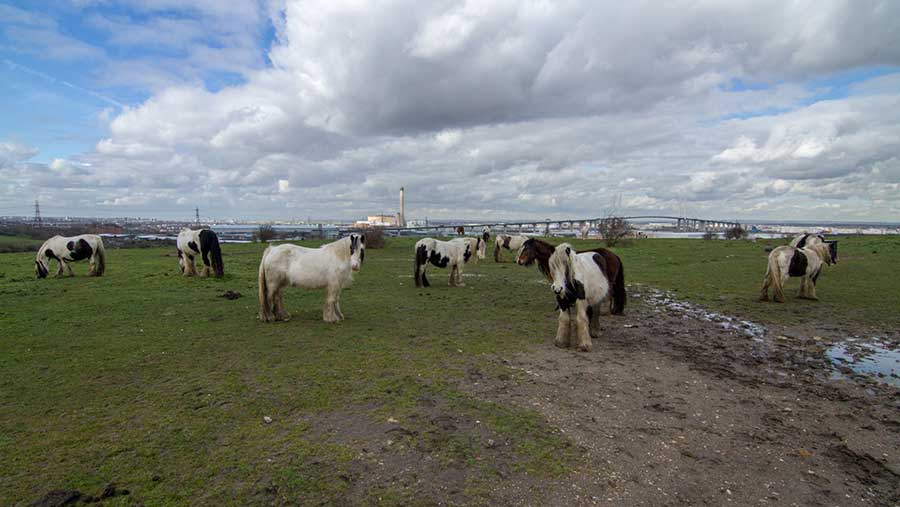New laws help tackle scourge of fly-grazing
Latest figures show a reduction in the number of horses fly-grazed across England and Wales – more than a year after new laws were introduced to tackle the problem.
According to the RSPCA, there are estimated to be 3,000-3,500 horses currently fly-grazed across England and Wales, the same number as were estimated in England alone in 2014.

© World Horse Welfare
Countryside campaigners said the figures provided “strong evidence” that new legislation aimed at tackling the problem was having an effect.
See also: Farmers get more powers to deal with fly-grazing
A coalition of rural organisations and animal welfare charities, including the CLA, NFU, Countryside Alliance, RSPCA and World Horse Welfare, worked closely to drive a private members’ bill through parliament to give landowners greater powers to deal with horses left illegally on land.
The new Control of Horses Act aims to help farmers and landowners take swifter action to deal with horses illegally abandoned on their farms. It came into force in England in May after similar laws were first introduced in Wales.
Under the Act, horses can now be removed immediately rather than waiting two weeks and ownership is assumed by the landowner after just four days.
The Act also opens up more options to dispose of the horses besides public sale, such as gifting them to a charity, selling them privately or humane euthanasia.
“We campaigned for almost three years for tougher legislation to tackle fly-grazing, which blights local communities and puts thousands of horses’ lives at risk every year, so it is encouraging to see positive results,” said World Horse Welfare chief executive Roly Owers.
More work needed
However, Mr Owers believes more work is needed to create awareness of the Act, and more local authorities and landowners must show willingness to use its powers.
CLA chief executive Ross Murray added: “Fly-grazed horses can damage land, crops and fencing, restrict space for livestock and cost money to provide for their welfare and safety.
“Thanks to the Control of Horses Act farmers and landowners can act for swift resolution by, for example, rehoming the horses to charities or privately.
“In areas where fly-grazing continues to be a problem, local authorities and police forces must now begin working together to enforce the Act and support the local community in eradicating the problem.”
